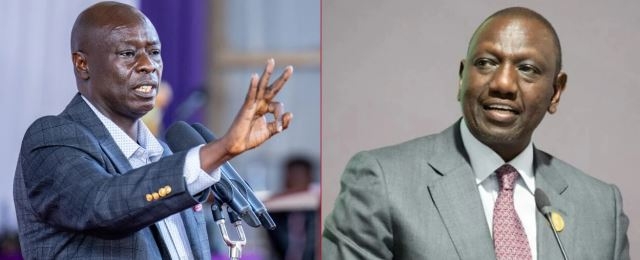The Energy ministry is engaging industry players in a move that could see Kenya abandon the government-to-government fuel import deal signed early this year.
The deal was aimed at easing pressure on the dollar and availing cheaper fuel imports in Kenya, but this is yet to be attained.
In March, Kenya issued its first oil import tender under the new system that was designed to cut pressure on the foreign exchange rate by switching to 180-day credit from settlement on delivery.
The previous system was open to all retailers, with the winner supplying the oil industry for two months and paying for the cargo in hard currency within five days of delivery.
At the time of the deal, the Kenya Shilling was trading at Sh128 against the dollar with the government had anticipating it would recover to around Sh115.
However, the shilling has continued to shed its value against the dollar closing in at Sh145.2 as at Monday evening.
The price of fuel has also continued to increase with Kenyans paying in excess of Sh194.68, Sh179.67 and Sh169.48 for Super petrol, diesel and kerosene respectively.
“Between today and Wednesday we are going to see how to go forward, do we continue with the G to G or do we go back to spot market? These are the issues we are engaging with the Oil Marketing Companies,” said Energy and Petroleum Cabinet Secretary Davis Chirchir.
Chirchir however maintained that the deal has slowed down the rate at which the Kenyan shilling has shed its value.
“I think we have addressed the challenge of slowing down the shilling depreciation, who knows it might be at Sh180 or Sh200 today. What we want to address is do we continue with the agreement or do we allow a system that will be sucking $500 million from the economy every month?” said Chirchir.
The ministry came under the spotlight from industry players after July fuel imports delayed and were brought under August cycle, which will see Kenyans, pay more by up to Sh17 percent.
Last week National Treasury Cabinet Secretary Njuguna Ndung’u had hinted that Kenya would take a step back from the government-backed fuel import credit scheme negotiated with gulf nations after the International Monetary Fund expressed concerns that taxpayers might be exposed to currency-related costs.
Ndung’u said the government would allow private sector players, including oil marketing companies, banks, and credit insurance providers, to run the scheme.

















